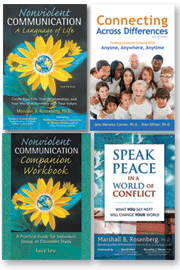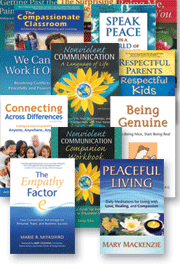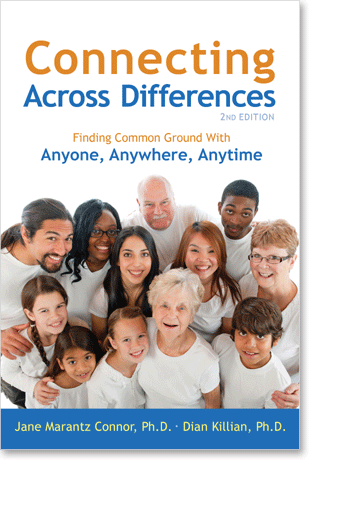 |
|||
 |
Empathy Guessing Demystified The Practice of Making a Semantic-based Empathy Guess By Dian Killian, PhD |
|
|
When I was new to NVC and first experienced empathy, I was in awe. How could someone know so deeply what I was feeling? Empathy was so simple and powerful it seemed like magic---or at least telepathy. |
 |
New Online Book Study & Author Interview Series Telecourse on Respectful Parents, Respectful Kids Starts Friday March 23 Facilitated by Taylor Duvall |
|
|
Have you ever wanted to integrate the principles in a book into your life or to ask the author questions? I am gathering a group of like-minded folks to connect and bring the book Respectful Parents, Respectful Kids to life in a new virtual Book Study Author Interview Telecourse. Keep reading this article below >> |
|
|
||
|
NVC Starter Kit Book Package (only)
NVC Reference Library Book Package (only) |
|
|
||
|
Free Weekly NVC Tips Series: Living Compassion NVC Tips Workplace Communication NVC Tips Compassionate Parenting NVC Tips Compassionate Educator NVC Tips Peaceful Living Meditations Free Tips Series Highlight:
Recommended Resources |
|
|
||
|
Marshall Rosenberg, Ph.D. talks about the keys to prevent all forms of conflict and violence in this 10-minute video.
Share This Inspiring 10-Minute Video With Your Friends
Go to the video now and select the "Share This" link in the right corner to share this video using your favorite social media platform.
Special Notices
Here's an Overview of NVC that we hope our readers might enjoy. Do you? If you come across an NVC related item you think others would enjoy, let us know using our Feedback Form.
Jim and Jori Manske, certified NVC trainers, went from poverty to financial independence in 8 years and they’re making the process they used available to you! Please join them in this inspiring 8-session program to transform your relationship with money, scarcity and abundance. Register for Financial Liberation Marshall Rosenberg NVC Quote
for March
From our online NVC Quote Resource
"Regardless of our many differences, we all have the same needs. What differs is the strategy for fulfilling
these needs." |
|
The Introductory Connecting Across Differences, 2nd Edition Now with an expanded selection of broadly applicable exercises, roleplays, and activities that challenge readers to immediately apply the NVC concepts in every day life.
Search Inside This Book >>
List Price: Your Price: $11.95 — Continue to save 40% through April 30, 2012
|
|||||||||||||||||||||||||||||||||||||||||||||
|
Receive a discount coupon to purchase Respectful Parents, Respectful Kids for a total of 40% off with your registration.
|






